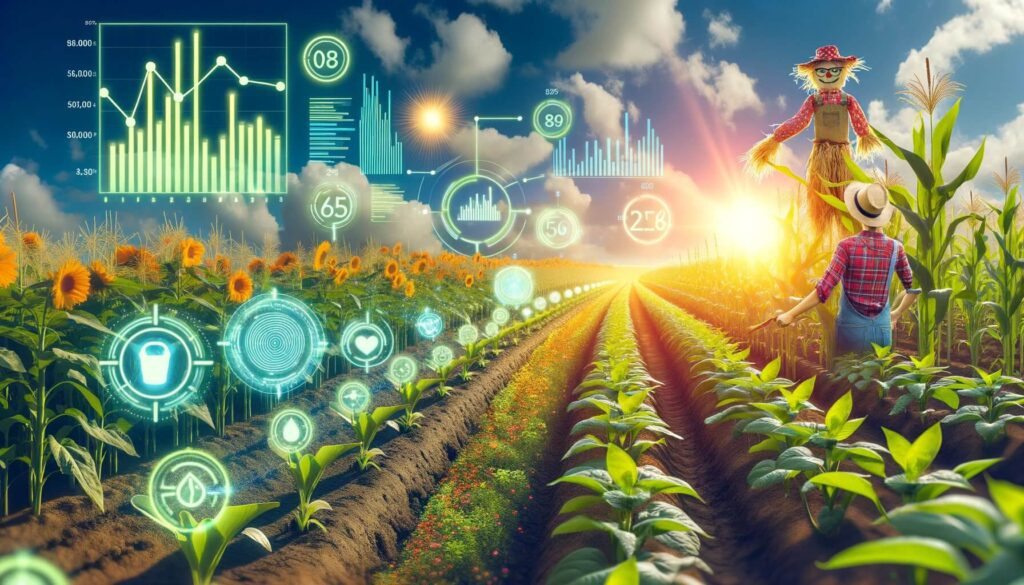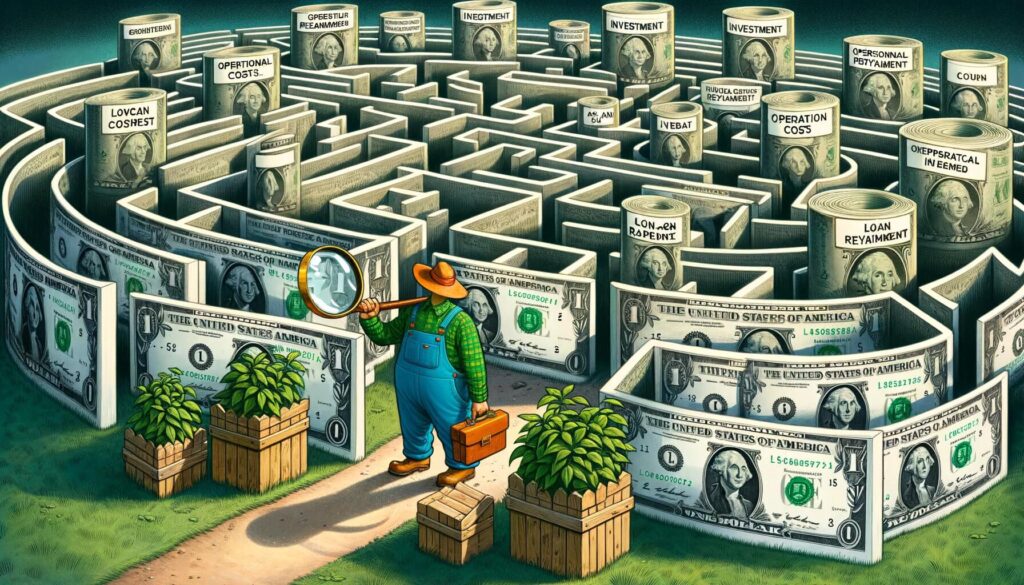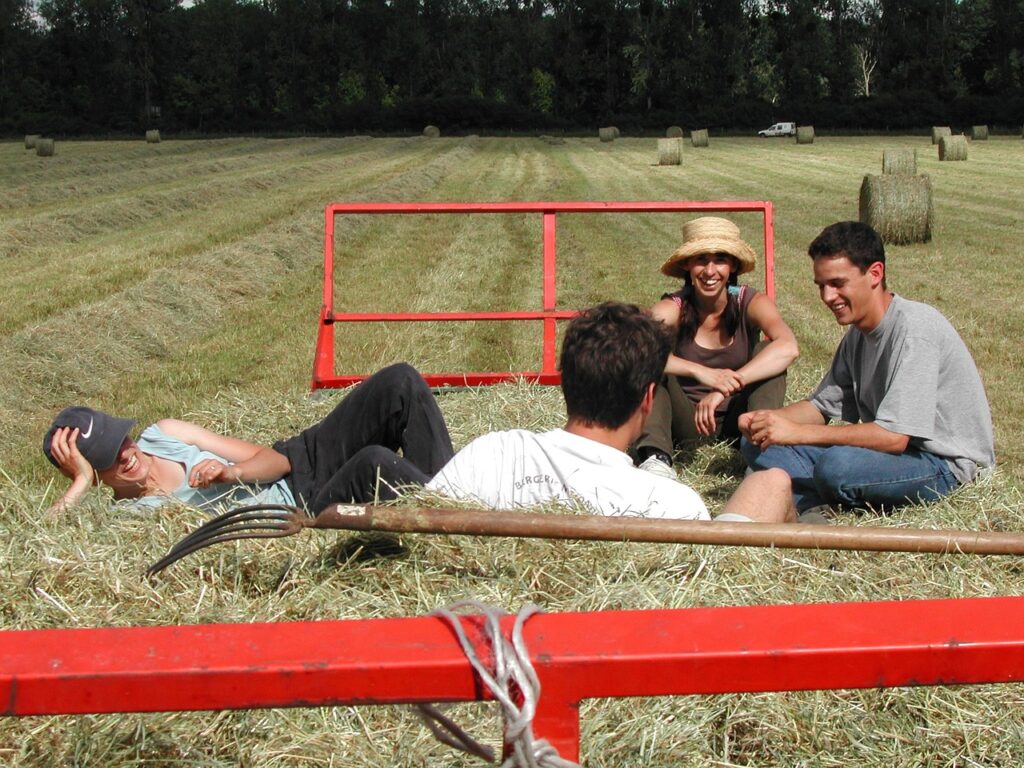Introduction
Agripreneurship sits at the crossroads where tradition meets innovation. It’s where the time-honored practices of agriculture join forces with the entrepreneurial spirit to sow the seeds of opportunity, growth, and community transformation.
A Fertile Ground for Change
Agripreneurship isn’t just about cultivating crops; it’s about cultivating change. It’s a venture where the soil and the soul of innovation nurture seeds of change that have the potential to sprout into robust enterprises.
This arena is not just a field, but a fertile ground where green thumbs meet sharp minds, growing not just produce but possibilities.
The Harvest of Community Transformation
The ripple effect of agripreneurship extends beyond the individual, reaching the shores of communities and even nations.
By embarking on agripreneurial ventures, individuals are not merely harvesting crops, but opportunities, solutions, and a sustainable future. They’re contributing to a narrative of community self-sufficiency, economic resilience, and environmental stewardship.
Sowing Seeds of Opportunity
Every furrow plowed by an agripreneur is a step towards solving real-world problems, be it food security, unemployment, or economic downturns. It’s about leveraging the tools of entrepreneurship to address the age-old challenges of agriculture, turning them into a canvas of opportunity.
Through the lens of agripreneurship, every challenge in agriculture morphs into a venture ripe with potential.
Agripreneurship is not merely a sector; it’s a movement. It’s about looking at a field and seeing a future filled with innovation, growth, and community transformation.
Let’s dive deeper!
Technological Innovations in Agripreneurship
The winds of technological innovation are sweeping across the fields, bringing with them a harvest of possibilities for agripreneurs. The digital age is revolutionizing agriculture, turning every aspect of farming into valuable data for smarter, sustainable practices.

Revolutionary Technologies: The New Harvest
The trio of IoT (Internet of Things), big data, and Artificial Intelligence (AI) is playing the lead role in this agrarian renaissance. IoT devices are the eyes and ears on the farm, constantly monitoring soil moisture, crop health, and livestock conditions, sending real-time updates to the farmer’s digital dashboard.
Big data analytics takes this vast ocean of information, churns it, and extracts actionable insights. It tells agripreneurs when to sow, when to water, and when to harvest for optimal yields.
AI, the wizard in the machine, takes it a step further. It’s not just processing data but learning from it, predicting disease outbreaks, forecasting weather impacts, and automating routine tasks.
Technology Transfer: Bridging the Digital Divide
But what good is a revolution if it doesn’t reach the ones who need it the most? Technology transfer is the bridge that carries the fruits of digital innovation from the tech labs to the farm fields.
It’s about making these advanced tools accessible and usable for agripreneurs, irrespective of their scale of operation. Agripreneur-focused workshops, government initiatives, and agritech incubators are playing pivotal roles in this transfer.
They are the conduits through which knowledge and technology flow, demystifying the digital jargon, and translating it into the practical language of farming.
Through a blend of cutting-edge technologies and effective transfer mechanisms, a new landscape of agripreneurship is unfolding. It’s a landscape where data-driven decisions lead to more fruitful yields, where technology empowers rather than intimidates, and where the age-old wisdom of farming is getting a digital companion.
Sustainable and Organic Agripreneurship
Embracing the green heart of agripreneurship reflects a commitment not just to nature, but to future generations. Sustainability and organic farming are intertwined, honoring the earth’s ageless rhythm, the heartbeat of civilizations.
Sustainable Practices: The Green Thumbprint
Sustainable practices in agriculture are like a conversation with the land. It’s about listening, understanding, and responding to the natural ecosystem.
Eco-friendly farming techniques such as crop rotation, conservation tillage, and organic pest control are not just methods; they are a dialogue. They seek to reduce the carbon thumbprint, enrich the soil, and create a harmonious balance between the land and the farm activities.
Agripreneurs adopting these practices are not just farming; they are also nurturing a legacy of environmental stewardship. They’re creating a model of agriculture that doesn’t borrow from tomorrow but gives back to today, contributing to both environmental conservation and community wellbeing.
Organic Farming Trend: Nature’s Bounty, Certified
In the marketplace, the narrative of organic farming is resonating with a growing audience. Consumers are not just buying food; they’re investing in health and environmental wellness. This trend is a golden leaf for agripreneurs.
However, it’s not a stroll in the farm. Organic certification processes are rigorous, ensuring that the produce is free from synthetic pesticides and fertilizers. But the effort blossoms into benefits. Certified organic products often fetch a premium price in the market.
Moreover, the organic farming movement is more than a certification; it’s a community. It’s about sharing knowledge, seeds, and a vision for a cleaner, greener world.
Embracing sustainable agripreneurship aligns with nature’s wisdom, echoing the rhythm of the Earth. Agripreneurs grow crops while nurturing a future where agriculture harmonizes with the natural world.
Financial Landscape of Agripreneurship
The journey of agripreneurship is as much a financial expedition as it is a venture into the green realms of agriculture. The fertile ground of opportunities comes with its share of financial weeds that need tending.

Financial Challenges and Solutions: The Monetary Weeds and Fertilizers
Financial hurdles are the uninvited guests in the agripreneurial journey, yet they are as natural as the seasons. From initial capital to operational expenses, the monetary demands can be as relentless as weeds in a field.
However, there’s a bouquet of financial fertilizers available to nourish the agripreneurial venture. Various investment opportunities, grants, loans, and funding mechanisms are the rainfall to the financial drought.
Green-minded investors, government grants, and favorable loans are routes through the financial maze for agripreneurs. Crowdfunding platforms are also emerging as a viable avenue, where the community becomes the nourisher of the agri-dreams.
Value-Added Agripreneurship: The Cultivation of Worth
Beyond just sowing seeds and reaping crops, there’s a realm of agripreneurship that blooms through innovation. Value-added agripreneurship is about enhancing the innate value of agricultural products, transforming them into brands that resonate with consumers.
It’s the art of processing, packaging, and presenting agricultural produce in a manner that elevates its market value. Whether it’s turning fresh tomatoes into gourmet sauce or crafting artisanal cheeses, the essence is in adding a layer of value that transforms the agricultural produce into a brand.
It’s about creating a narrative around the product that connects with the consumer, telling a story that’s as enriching as the soil it sprung from.
Financial aspects in agripreneurship bring both challenges and opportunities, requiring resilience and innovation akin to addressing natural farming challenges. Wise financial strategies sow the seeds for agripreneurial success, benefiting not only individuals but also local economies.
Agripreneurship and Food Security
Agripreneurship is more than a venture; it’s a vital cog in the wheel of food security, ensuring the table is never barren. The fusion of entrepreneurial spirit with agricultural acumen has the potential to be a game-changer in the narrative of food security.

The Grain of Agripreneurial Impact
The agripreneur doesn’t just till the soil; they cultivate hope for a hunger-free world. By stepping into innovative farming practices, agripreneurs are able to ramp up food production, making a significant dent in the global food supply chain.
Their ventures bring forth a cornucopia of food products, reaching the farthest corners, ensuring no belly goes to bed hungry. It’s not just about feeding the present, but sowing seeds for a future where food scarcity is a tale of the past.
The Harvest of Innovation
Agripreneurship is where the shovel meets innovation, digging pathways to enhanced food security. Through sustainable farming practices, embracing technology, and developing resilient supply chains, agripreneurs are at the forefront of combating food insecurity.
Their willingness to adopt new-age agricultural tech creates a ripple effect, increasing yields, reducing waste, and ensuring food reaches from farm to fork efficiently.
Planting Seeds of Security
The crux of agripreneurship’s role in food security lies in its ability to transform traditional agricultural practices.
By adopting a business mindset, agripreneurs are not only ensuring their own sustainability but are playing a crucial role in the global fight against hunger. Their ventures serve as the green lungs in the body of food security, breathing hope into regions marred by food scarcity.
The landscape of food security is fertile with opportunities for agripreneurs to make a meaningful impact. It’s where every seed sown is a step towards a future where hunger is only a word in the history books.
Through innovative and sustainable practices, the agripreneur is not just a farmer, but a crusader in the fight against food insecurity.
Education, Training, and Support Structures
The realm of agripreneurship is as fertile as the lands it cultivates, but sowing the seeds of success requires more than just a green thumb. It beckons for a blend of education, training, and the nurturing canopy of support structures to foster growth.

Cultivating Minds: Agripreneurial Education and Training
The journey from seedling to a fruitful venture in agripreneurship begins with the right education and training. Institutions and resources dedicated to agricultural entrepreneurship education are the nurseries where aspiring agripreneurs are rooted in essential knowledge.
They offer a soil rich with courses, workshops, and practical experiences, preparing individuals to flourish in the field of agripreneurship. The education isn’t just about how to sow, but also how to grow sustainably, manage the farm finances, and take the produce to the market efficiently.
Nurturing Ventures: Incubators and Accelerators
Just as a young sapling needs a nurturing environment to thrive, so does a budding agripreneurial venture. Incubators and accelerators are the greenhouses for these ventures, providing the right conditions for growth.
They offer a cocoon of support, where agripreneurs can germinate their ideas into viable businesses under the mentorship of seasoned agriculturists and entrepreneurs. These structures provide the nourishment of networking, funding opportunities, and mentorship, catalyzing the growth from a nascent idea to a robust agripreneurial venture.
The Greenhouse Effect: A Symbiosis
The symbiosis between education, training, and support structures creates a conducive ecosystem for agripreneurial success. The knowledge acquired from educational institutions serves as the bedrock, while the support from incubators and accelerators acts as the catalyst, accelerating the journey from a budding idea to a blooming venture.
It’s a greenhouse effect that propels agripreneurs towards achieving their goals, contributing to a greener and more sustainable economy.
The path of agripreneurship is laden with opportunities, and with the right blend of education, training, and support, aspiring agripreneurs are well on their way to cultivating success, reaping the fruits of their labor in a landscape ripe with potential.
Market Access and Marketing Strategies
The marketplace is a bustling bazaar, teeming with opportunities yet brimming with challenges for agripreneurs. Navigating this terrain requires a compass of market access strategies and a map of effective marketing methodologies.
Opening Gates: Market Access Challenges
The first hurdle in the race to the market is gaining access to it. Agripreneurs often find themselves in a maze of networks, partnerships, and market channels. Strategizing to expand market reach, building robust networks, and forming fruitful partnerships are crucial stepping stones.
It’s about finding the right doors to knock on, and creating new doors when none open. The strategies may include engaging with local cooperatives, leveraging digital platforms for direct sales, or collaborating with established players in the agricultural sector.

Sowing Seeds of Recognition: Agripreneurial Marketing
Marketing in the realm of agripreneurship is akin to sowing seeds. It’s about planting the essence of the brand in the fertile minds of consumers. Crafting a resonant narrative, building a standout brand, and forming meaningful consumer connections go hand in hand.
Utilizing social media, storytelling, and community engagement can help agripreneurs foster a genuine connection with their audience, promoting their products in a way that’s as organic as their produce.
Harvesting Loyalty: Beyond the Sales
Marketing doesn’t end at the point of sale; it’s a continual process of engagement. Agripreneurs have the unique advantage of promoting not just products, but a lifestyle, a cause, and a narrative of sustainability.
Keeping the conversation going, sharing the journey from farm to table, and celebrating the community around the brand can help in nurturing a loyal customer base.
In the agripreneurial world, markets can appear challenging, but with effective strategies, they can lead to financial success and a legacy of trust. Successful market access and marketing strategies have a ripple effect, promoting informed choices and sustainable living.
Policy Frameworks and Regulatory Compliance
The tapestry of agripreneurship is embroidered with various threads of government policies and regulatory frameworks. How these threads are woven can significantly impact the texture and color of the entrepreneurial journey in agriculture.

Sailing the Policy Seas: Government Policies
Government policies are like prevailing winds, they can either propel agripreneurs forward or push them off course. Understanding these policies, from subsidies to land use regulations, is like having a reliable compass. Governmental strategies and agripreneurial ventures must coordinate effectively, either dancing in harmony or risking discord.
Engaging with policy makers, staying updated on agricultural policies, and actively participating in agricultural boards or associations can help agripreneurs navigate the policy seas more effectively.
Treading the Compliance Tightrope: Regulatory Adherence
Compliance in the agricultural sector is akin to treading a tightrope. One misstep and the fall can be steep. Regulatory frameworks encompass a myriad of aspects from food safety to environmental regulations.
Navigating through these compliance requirements is essential to ensure that the venture remains on a solid footing. Leveraging legal advice, engaging compliance experts, and utilizing technology to monitor and manage compliance can be invaluable for agripreneurs.
Advocacy and Policy Influence: A Two-Way Street
Beyond mere compliance, there lies a realm of advocacy and policy influence. Agripreneurs have the potential to not just navigate the policy framework but also to influence it.
By engaging in advocacy, joining forces with agricultural associations, and participating in policy dialogues, agripreneurs can contribute to shaping a more conducive policy environment for agricultural entrepreneurship.
Policy and agripreneurship can foster innovation, sustainability, and economic growth. It’s a dynamic landscape where adherence, advocacy, and awareness empower agripreneurs to cultivate their ventures and drive positive change in agriculture.
Agripreneurship in Different Demographics and Geographies
The seeds of agripreneurship are sown in diverse soils, sprouting unique ventures in varied demographic and geographic landscapes. The colors of these entrepreneurial blossoms vary, reflecting the distinct challenges and opportunities encountered by women, youth, and different regions across the globe.

Cultivating Futures: Women and Youth in Agripreneurship
The fields of agripreneurship are tilled by the young and the tenacious, painting a hopeful picture of what lies ahead. Women and youth bring fresh perspectives, innovative ideas, and a boundless energy that can invigorate the agricultural sector.
However, they often face unique hurdles like access to resources, societal expectations, and the daunting task of breaking into often male-dominated agricultural networks. Initiatives that provide mentorship, training, and financial support are critical to nurturing these budding agripreneurs, ensuring the soil they tread on is fertile for growth.
Harvesting Global Trends: Agripreneurship Across Borders
As we voyage from one region to another, the face of agripreneurship morphs, reflecting the unique cultural, economic, and environmental contexts. In developing countries, agripreneurship often emerges as a beacon of hope amidst economic uncertainties, providing avenues for self-sufficiency and community development.
Examining the varying models and approaches across different terrains provides valuable insights. These insights could guide aspiring agripreneurs in crafting strategies that resonate with local realities yet have a global appeal.
Bridging Local and Global: The Confluence of Cultures
Agripreneurship is a fertile ground where local practices intertwine with global trends, creating a vibrant blend of traditional and modern agricultural entrepreneurship. This confluence is where innovation sparks, yielding models that are deeply rooted in local realities while reaching out to global markets.
Embracing the diversity in agripreneurial practices across different demographics and geographies is not just an avenue for growth, but a journey towards a more inclusive and sustainable agricultural sector.
The narrative of agripreneurship is penned with diverse ink, each demographic and geography adding its unique shade to the broader agripreneurial canvas. It’s a tale of hope, resilience, and the indomitable spirit of individuals committed to making a difference through the soil they till and the communities they nurture.
Conclusion
The venture into agripreneurship is akin to planting a seed with boundless potential, growing towards a sky teeming with opportunities. As it stretches upwards, it not only seeks to reach new heights but to nurture the very ground it sprouts from.
Sowing Seeds of Transformation
Agripreneurship is not merely a business venture; it’s a promise of transformation. The fusion of innovative technology, sustainable practices, and a keen understanding of market dynamics enables agripreneurs to cultivate a future of food security, environmental conservation, and economic self-sufficiency.
It’s a landscape rich with opportunities, ready for the taking by those willing to get their hands a little dirty.
Cultivating Tomorrow
The narrative of agripreneurship is a compelling testament to what’s achievable when entrepreneurial spirit meets agricultural grit. Through modern tools and innovation, we’re shifting toward agriculture that fosters sustainability, community, and economic resilience.
Answering the Call: Agripreneurs Lead the Green Revolution
In the midst of this burgeoning green revolution, a clarion call resounds throughout communities, inviting aspiring agripreneurs to embrace the mantle of innovation and cultivate change. It’s not solely about reaping crops but about reaping a future enriched with potential, success, and a heritage of nurturing the planet.
The realm of agripreneurship is abundant and prepared, anticipating the hands that will nurture, labor, and metamorphose.
Check out -> how entrepreneurs are creating jobs.




